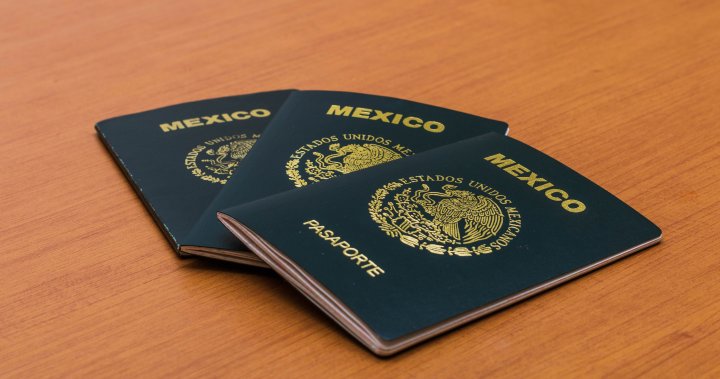Canadian tourism businesses are concerned about a recent change now requiring visas for citizens of Mexico – which is one of the country’s top overseas tourist markets – coming into Canada.
The Tourism Industry Association of Canada (TIAC) said this new requirement could have “very real” repercussions on the sector, which is still reeling from the pandemic-era travel restrictions.
“Any time you put up a barrier to travel, you will see a decrease,” Beth Potter, TIAC president and CEO, said in an interview with Global News Tuesday.
“What we’ve seen in the past is that when visas have been implemented for Mexicans coming to Canada, the numbers have gone down and the repercussions are very real,” she said.
The federal government announced last month that Mexican citizens will once again need a visa to come to Canada amid a surge in asylum claims in recent years.
As of Feb. 29, Mexican citizens have to apply for an entry requirement known as an electronic travel authorization (ETA) if they hold a valid U.S. non-immigrant visa or have had a Canadian visa in the past 10 years and are travelling by plane.
Those who do not meet these conditions will need to apply for a Canadian visitor visa, Immigration, Refugees and Citizenship Canada said.
The IRCC says the majority of Mexican citizens will continue to enjoy visa-free travel to Canada, since many currently hold U.S. visas.

With spring and Easter break right around the corner, Potter said businesses are growing concerned about the impact this could have on them.
The email you need for the day’s
top news stories from Canada and around the world.
The email you need for the day’s
top news stories from Canada and around the world.
“Certainly, we’ve already seen cancellations of Mexicans that had planned to travel to Canada,” she said.
On top of the extra paperwork, Mexican passport holders who apply for a Canadian visa will also have to pay an application fee, which Potter said is roughly $100.
Potter called on the federal government to ensure the process is streamlined and easy.
For those Mexicans who had already planned their travel for March and April, their documentation should be expedited as quickly as possible so they can still make their trip, Potter said.

The Tourism Industry Association of Ontario (TIAO) also voiced its concern in a news release last week.
“The visa requirement changes are already having an immediate financial impact on tourism businesses — notably tour operators — as many visitors with pre-booked travel in the next 30 to 60 days may be unable to obtain the required visa in time,” the TIAO said.
“As such, the visa requirement changes have already wiped out April-May for many tourism businesses and caused financial hardship for those now facing cancellation fees and losses.”
For the upcoming summer season, the TIAO is urging Ottawa to implement an expedited visa processing time for Mexicans who had booked departures to Canada before the visa rules kicked in.
How much tourism does Mexico bring to Canada?
Mexico is roughly 3,600 kilometers from Canada and only a short flight away.
Given the proximity to Canada, Mexico is one of the top markets for Canadian tourism.
“Mexicans do love our winter,” Potter said. “They love to come up and experience activities such as skiing and taking in other winter sports.”
In December 2023, roughly 69,300 Mexican residents came to Canada, making Mexico the second-ranked overseas market to Canada after the United States, according to Statistics Canada.
StatCan data shows that the number of travellers coming from Mexico has gone up in recent years.
Last year, a total of 595,537 travellers came to Canada from Mexico and in 2022, there were 374,076.
In 2021, when COVID-19 pandemic restrictions were in effect, this number was 87,443.
Last year, Mexican nationals spent $754 million in Canada, Potter said, adding that tourism is a “really important part” of the Canadian economy.

For Canada’s most populous province, Ontario, Mexico is one of the top five international markets, accounting for $236 million in visitor spending and 230,600 visits annually, according to the TIAO.
For tour operators and motor coaches, for instance, Mexican visitors are expected to represent 24 per cent of their total charter revenues for March to December 2024, the TIAO said in its news release last week.
The tourism sector also has a keen eye on the 2026 FIFA World Cup, which Canada will be co-hosting with the U.S. and Mexico.
“We want to make sure that folks that are attending those games will be able to do so in a way that is easy for them to move between the different cities that are hosting the games,” Potter said.
The changes to visa requirements do not apply to Mexicans who hold valid work or student permits.
— with files from Global News’ Touria Izri
© 2024 Global News, a division of Corus Entertainment Inc.




